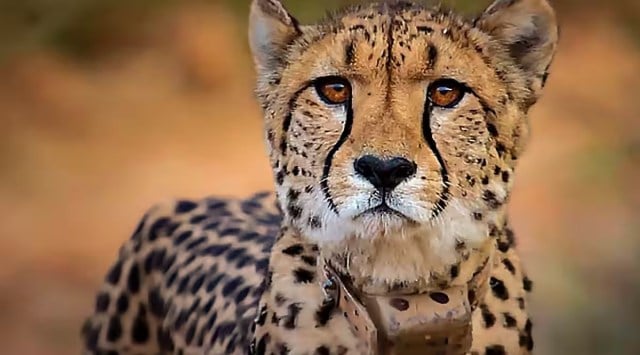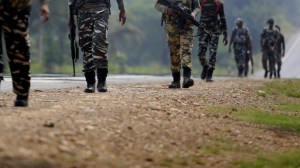South African and Namibian experts, all members of the national cheetah project steering committee, under which 20 cheetahs have been translocated to India beginning last September, have written to the Supreme Court expressing their anguish over being kept in the dark and have raised “serious concerns” over the project’s management.

The first set of eight cheetahs from Namibia were released into the Kuno National Park in Madhya Pradesh by Prime Minister Narendra Modi on September 17 last year and another 12 cheetahs landed from South Africa this February. Since the first two cheetahs were released in the wild on March 11, five adults and three cubs have died in Kuno.
On a petition filed by the National Tiger Conservation Authority (NTCA), the Supreme Court in January 2020 had lifted the ban it imposed on the cheetah project in 2013. The court continues to monitor the project.
On July 15, days after the death of male South African cheetahs Tejas and Suraj caused by radio collar injuries, South African veterinary wildlife specialist Dr Adrian Tordiffe signed a letter on behalf of his colleagues: cheetah specialist Vincent van der Merwe; and wildlife veterinarians Dr Andy Fraser and Dr Mike Toft.
Around the same time, another letter was addressed to the Supreme Court by Dr Laurie Marker, executive director of Namibia’s Cheetah Conservation Fund, flagging issues similar to the ones in Tordiffe’s letter. When asked what had she asked for in the letter, Marker told The Indian Express: “Better communication with experts, need to trust experts, better observation (monitoring) and regularly share reports with experts.”
The SA experts’ letter, reviewed by The Indian Express, flagged how the project’s current management has “little or no scientific training;” how the foreign experts’ “opinions” are being “ignored;” why they “had to beg for information” and how they “have become mere window dressing” for the project.
Story continues below this ad
Government sources said that van der Merwe and Fraser have since disassociated themselves from the letter.
But, when contacted by The Indian Express, van der Merwe said he was “not involved” and Tordiffe declined to comment.
“Very little information has been forthcoming from Kuno regarding the cheetahs and their care. Although we are listed on the Cheetah Project Steering Committee as international experts, we have never been consulted by them or invited to any of their meetings,” Tordiffe’s letter said.
To illustrate how this had consequences, the experts detailed how the Kuno field team wrongly assumed that the male cheetah, spotted at around 11 am on July 11 with wounds on the back of his neck, was injured by a female cheetah which was an “extremely unlikely” scenario.
Story continues below this ad
“The staff at Kuno left the injured male, deciding rather to locate the female to check if she was also injured. During that time the condition of the male deteriorated, and he died at around 2 pm without having received any treatment,” the letter said.
The experts claimed they heard from Kuno only the next morning when a summary and some photos of the post mortem were shared.
“No comment was made about the inflammation of the skin over the neck or the very large number of maggots that were clearly visible in the photo,” they wrote, adding that they could diagnose the radio collar issue only when they received a video clip after the death of yet another cheetah on July 14.
Had they been shown pictures or had a description of the “wounds,” they would have alerted authorities to act to minimise the risk to the other animals. “Instead, we were largely excluded from the process and had to beg for information to understand what had taken place,” they wrote.
Story continues below this ad
Highlighting that the project’s failure would discourage similar attempts for many years to come, the experts have asked the SC to enable sharing of “clinical findings…real-time so that a collective decision can be made on how to treat each animal.” And they be actively included in the activities of the Steering Committee.
Kuno suffered the first cheetah casualty on March 27 when a Namibian import, Sasha, died of kidney ailment.
South African male Uday died on April 24 of unknown causes.
On May 9, a female cheetah from South Africa, Daksha, died following a “violent interaction” with two male cheetahs during attempted mating. Three cubs born to Namibian female Jwala died of dehydration and weakness later in the month.
Story continues below this ad
Tordiffe’s letter also claimed that the experts were sidelined ever since Dr Y V Jhala, widely considered the architect of the project, was “forced to retire” last year.
In October, The Indian Express had first reported how Jhala, noted biologist and dean of the Wildlife Institute of India, who was at the forefront of the cheetah project for more than 13 years, and escorted the first batch of animals from Namibia, did not find a place in the government’s new Cheetah Task Force.
The Environment Ministry, it is learnt, has decided to soon place the two letters before the cheetah steering committee for “detailed deliberations.”
Set up in May, the cheetah steering committee is headed by Dr Rajesh Gopal, former head of Project Tiger; and includes, among others, Dr P R Sinha, former director of Wildlife Institute of India; WII scientist Qamar Qureshi and Ahmedabad-based social worker Mittal Patel.









